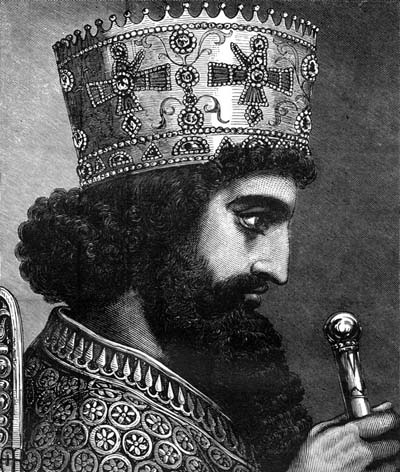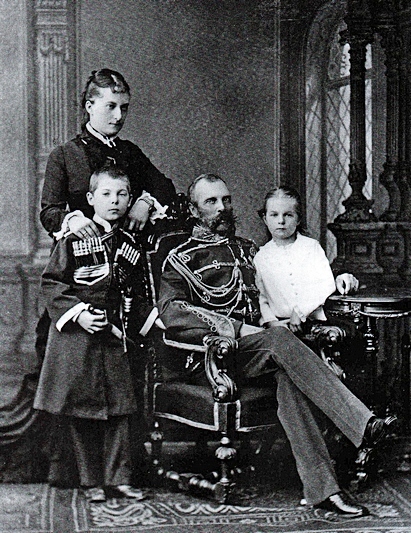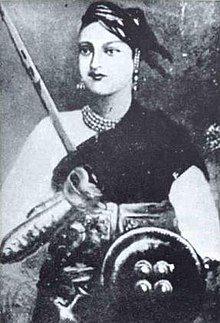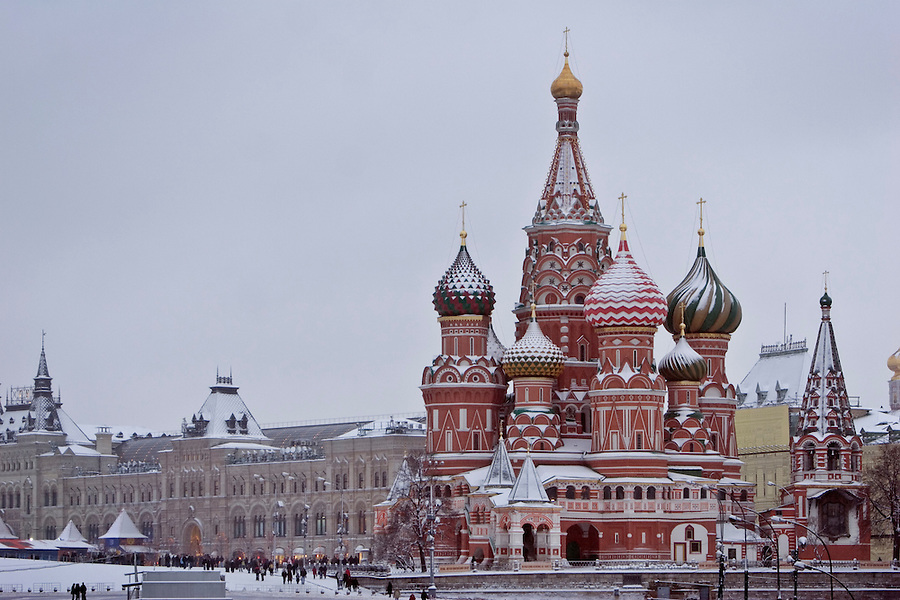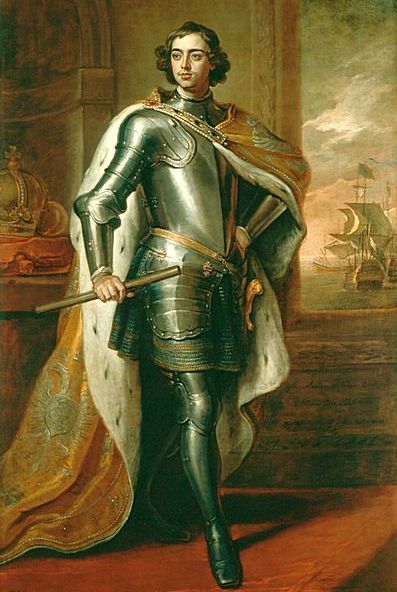Holy Roman Empress Theophano (sometimes spelled Theophanu or Theophania), was a Byzantine princess, who has the singular honor of having introduced the fork to Northern Europe. But beyond her taste in cutlery Theophano was also a wise and beloved Empress who helped bring Byzantine culture to the Germans.
 Theophano was a Byzantine princess, but she hadn't been 'born in the purple', meaning that she had been born before her father was Emperor. Because of this, she didn't have quite as high of a status as the other princesses, a situation that came in very handy for her uncle John Tzimiskes, when it was his turn to be Emperor.
Theophano was a Byzantine princess, but she hadn't been 'born in the purple', meaning that she had been born before her father was Emperor. Because of this, she didn't have quite as high of a status as the other princesses, a situation that came in very handy for her uncle John Tzimiskes, when it was his turn to be Emperor.
See, at this time There were a couple of very powerful empires--the Holy Roman, and the Byzantine. Then there was the Italian peninsula, which was a hot mess. The south belonged to the Byzantines, the north to the Germans, and the Arabs kept attacking the entire thing from their home base in Italy. Out of the two empires the Holy Roman was weaker, so it was no surprise when Otto I decided to try for a marriage alliance between the two states.
Admittedly, John Tzimiskes wasn't super keen to ally with the Germans. He did need their militaristic support, but in his mind the Byzantines were waaaaayy better than the Germans, and he couldn't let the Holy Roman Empire think that they stood on equal grounds, so instead of sending a princes who was 'born in the purple' as requested, he sent Theophano.
Otto I wasn't happy that he hadn't gotten the 'born in the purple' princess he'd requested, but Theophano brought most of southern Italy with her as a dowry, so Otto got over that complaint really quickly, and Theophano married Otto II. Otto I didn't have too much time to feel bitter, because he died shortly before their wedding, leaving Theophano with only one in law to deal with, the iron willed Adelaide of Italy.
While the Germans like Theophano, many of them thought her odd. The Byzantine empire was known for its luxurious, decadent ways, and Theophano was a product of that 'decadence'. She talked too much, she bathed every day, and, strangest of all, she used a two pronged utensil to bring food to her mouth (aka a fork), instead of eating with her hands like everyone else.
Weird foreignness aside, Theophano was an excellent empress. Much like her mother-in-law Adelaide, Theophano lucked out, and was good friends with Otto II. They jointly ruled their empire for about ten years, waging war against the neighboring French, and protecting their lands from Arabs and internal dissent. They had five children together, four of whom survived to adulthood. Then, in 983, Otto died.
Fortunately, Theophano had popped out another Otto, and so Otto III took the throne. Unfortunately, Otto III was only three years old at the time, so Theophano assumed the regency. She and her mother-in-law Adelaide combined forces to rule the empire, and kept the whole thing together. During her regency she repelled another French attack, appointed public and church officials, and ruled Italy, all while maintaining a close relationship with her son. She so influenced Otto III that after her death in 991 he basically ran the Holy Roman Empire in the ground trying to make it more like the beloved Byzantine Empire that his mother spoke so fondly of.
After her death Adelaide took over as regent for Otto III, and, because Adelaide didn't particularly like Theophano, she refused to have annual services read on the date of Theophano's death. A smear campaign against her started soon after, and so Theophano wasn't fondly remembered in Germany. She was, and is, however, remembered in modern Turkey, the land of her birth, where she is remembered as a wise and capable leader.
Sources
Theophano of Byzantium
Theophano, Empress and Regent
Theophano, Holy Roman Empress
The Princess Theophano
See, at this time There were a couple of very powerful empires--the Holy Roman, and the Byzantine. Then there was the Italian peninsula, which was a hot mess. The south belonged to the Byzantines, the north to the Germans, and the Arabs kept attacking the entire thing from their home base in Italy. Out of the two empires the Holy Roman was weaker, so it was no surprise when Otto I decided to try for a marriage alliance between the two states.
Admittedly, John Tzimiskes wasn't super keen to ally with the Germans. He did need their militaristic support, but in his mind the Byzantines were waaaaayy better than the Germans, and he couldn't let the Holy Roman Empire think that they stood on equal grounds, so instead of sending a princes who was 'born in the purple' as requested, he sent Theophano.
Otto I wasn't happy that he hadn't gotten the 'born in the purple' princess he'd requested, but Theophano brought most of southern Italy with her as a dowry, so Otto got over that complaint really quickly, and Theophano married Otto II. Otto I didn't have too much time to feel bitter, because he died shortly before their wedding, leaving Theophano with only one in law to deal with, the iron willed Adelaide of Italy.
While the Germans like Theophano, many of them thought her odd. The Byzantine empire was known for its luxurious, decadent ways, and Theophano was a product of that 'decadence'. She talked too much, she bathed every day, and, strangest of all, she used a two pronged utensil to bring food to her mouth (aka a fork), instead of eating with her hands like everyone else.
| Theophano and Otto II being crowned and blessed by Jesus Christ. |
Fortunately, Theophano had popped out another Otto, and so Otto III took the throne. Unfortunately, Otto III was only three years old at the time, so Theophano assumed the regency. She and her mother-in-law Adelaide combined forces to rule the empire, and kept the whole thing together. During her regency she repelled another French attack, appointed public and church officials, and ruled Italy, all while maintaining a close relationship with her son. She so influenced Otto III that after her death in 991 he basically ran the Holy Roman Empire in the ground trying to make it more like the beloved Byzantine Empire that his mother spoke so fondly of.
After her death Adelaide took over as regent for Otto III, and, because Adelaide didn't particularly like Theophano, she refused to have annual services read on the date of Theophano's death. A smear campaign against her started soon after, and so Theophano wasn't fondly remembered in Germany. She was, and is, however, remembered in modern Turkey, the land of her birth, where she is remembered as a wise and capable leader.
Sources
Theophano of Byzantium
Theophano, Empress and Regent
Theophano, Holy Roman Empress
The Princess Theophano




